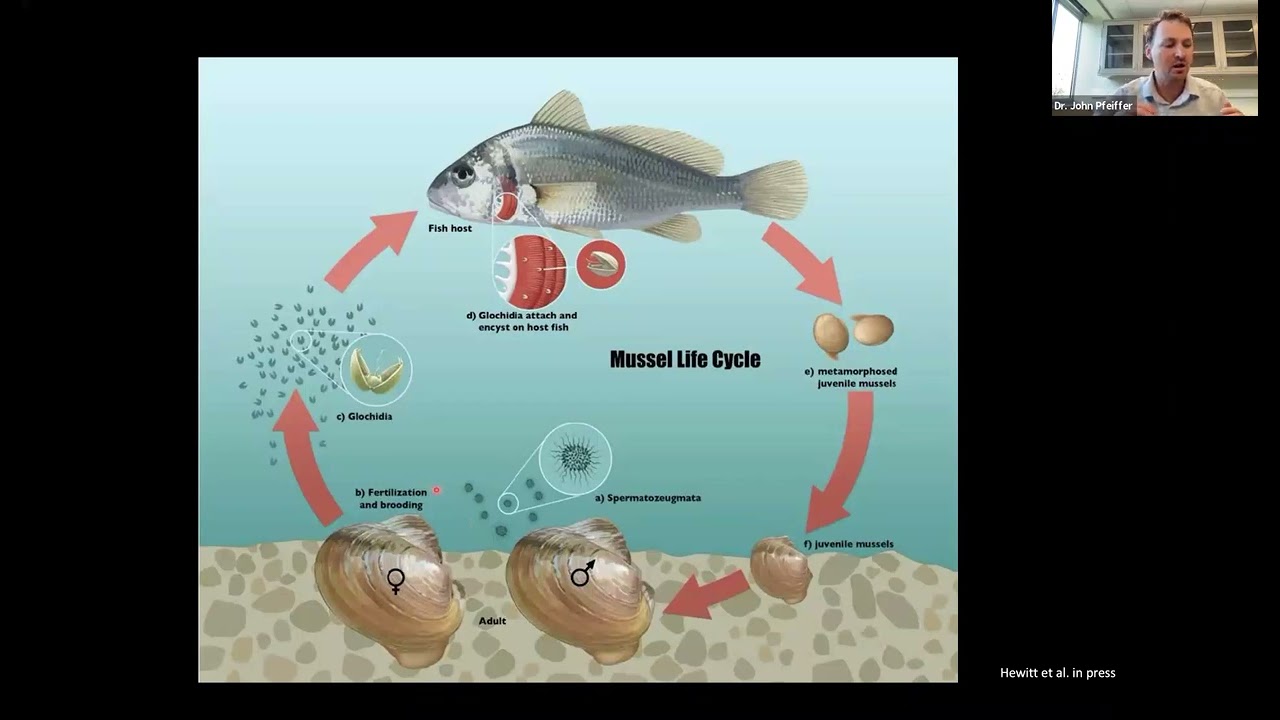Summary:
1. Freshwater mussels are fascinating creatures with many beautiful and diverse forms.
2. These mussels play crucial roles in maintaining freshwater ecosystems, and their disappearance presents a major conservation concern.
3. Dr. John Pfeiffer, a leading expert in freshwater mussel research, sheds light on their secret lives and ongoing conservation efforts.
4. Through fieldwork, nafieldworkory collections, and genetics, Dr. Pfeiffer aims to unravel the mysteries of these endangered creatures.
5. Understanding freshwater mussel biodiversity and ecology is essential for their conservation and preserving freshwater ecosystems.
The Secret and Endangered Lives of Freshwater Mussels
Freshwater mussels are not the most glamorous creatures in the animal kingdom, but their lives and importance to the ecosystems they inhabit are truly remarkable. These inconspicuous bivalves, commonly found in rivers, lakes, and streams around the world, hide a world of secrets and face a grim future due to their endangered status. In this article, we delve into the fascinating world of freshwater mussels and explore the work of Dr. John Pfeiffer, the Curator of Bivalvia at the Smithsonian National Museum of Natural History, who is dedicated to unraveling their mysteries.
The diversity of freshwater mussels is astonishing. With over 300 species in North America alone, these creatures exhibit various forms and colors. They come in shapes that resemble butterflies, elephants, and even towering castles. Their shells, adorned with intricate patterns, serve as beautiful ornaments in nature and camouflage, a means of protection from predators. Dr. Pfeiffer’s work revolves around understanding this morphological diversity and how it relates to their evolutionary history.
Although freshwater mussels may seem inconspicuous, they play a crucial ecological role. They are filter feeders, tirelessly pumping water through their gills to extract nutrients. Doing so helps maintain the water quality in their habitats, reducing excess nutrients and improving clarity. This process is important for the mussels and other organisms that rely on clean water, including fish and insects. Freshwater ecosystems would suffer without mussels, leading to detrimental consequences for the entire food web.
Unfortunately, freshwater mussels are facing extinction at an alarming rate. Due to habitat destruction, pollution, and the introduction of invasive species, many populations have declined drastically. It is considered one of the most endangered groups of animals in the world. Dr. Pfeiffer recognizes the situation’s urgency and focuses his research on conservation efforts to prevent further extinctions.
Dr. Pfeiffer employs an arsenal of scientific tools and approaches to understand freshwater mussel conservation. Fieldwork is a crucial aspect of his work, where he ventures into diverse habitats to study these elusive creatures in their natural environment. By observing their behavior, distribution, and interactions with other species, he gains valuable insights into their ecology.
Dr. Pfeiffer’s research is complemented by the vast natural history collections at the Smithsonian National Museum of Natural History. These collections house thousands of freshwater mussel specimens, allowing him to study their evolutionary history and genetic diversity. By analyzing DNA from various populations, Dr. Pfeiffer identifies distinct lineages and their connections across different regions, unraveling these enigmatic creatures’ complex relationships and adaptations.
Conservation is a key pillar of Dr. Pfeiffer’s work. Through his research, he aims to inform policymakers, land managers, and the public about the urgent need to protect and restore freshwater mussel habitats. He actively collaborates with other scientists, environmental organizations, and government agencies to promote conservation initiatives and ensure the survival of these endangered creatures.
But how can we, as individuals, contribute to conserving freshwater mussels? Firstly, raising awareness about their importance in maintaining freshwater ecosystems is crucial. By understanding freshwater mussels’ role in filtering water, we can appreciate their significance and advocate for clean water initiatives. Additionally, supporting organizations and initiatives dedicated to freshwater mussel conservation can make a tangible impact. Participating in local clean-up efforts, volunteering for monitoring programs, or even creating backyard habitats conducive to survival can contribute to their conservation.
Freshwater mussels are a hidden treasure, often overlooked in the grand tapestry of biodiversity. Yet, their disappearance would leave an unimaginable void in our freshwater ecosystems. Dr. Pfeiffer’s dedication to unraveling their secrets and conserving their habitats is truly inspiring. By understanding freshwater mussels’ unique and endangered lives, we can work towards a future where these remarkable creatures thrive and our freshwater ecosystems flourish. Together, let us embark on a journey to preserve the hidden wonders beneath the surface of our rivers and lakes.
*****
Source Description
By Dr. John Pfeiffer, Curator of Bivalvia, Smithsonian National Museum of Natural History
“The Secret and Endangered Lives of Freshwater Mussels”: Dr. Pfeiffer’s presentation introduces the wonderful world of freshwater mussel biodiversity, frequently considered ered one of the endangered gals in the world. It explores aspects of mussels’ beautiful morphology, amazing ecological interactions, and what scientists are doing to prevent further extinctions.
About the Speaker: Dr. JBivalvia’shn Pfeiffer is a Research Zoologtor of Bivalvia at the Smithsonian’s National Museum of Natural History. His research program combines fieldwork, nafieldworkory collections, and genetics to better understand freshwater mussels’ evolution, ecology, and conservation. He earned his Ph.D. in Zoology from the University of Florida.

